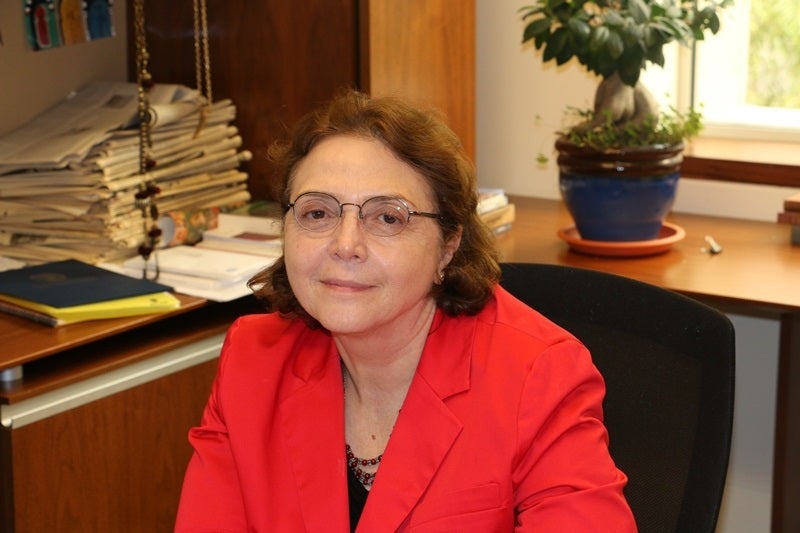Professor Amira El-Zein Releases A New Book, A Revolution in Literary Criticism

Georgetown University in Qatar (GU-Q) Professor Amira El-Zein makes a strong case for considering human creativity as an offshoot of the divine in a new book, released over the summer. Creativity and the Sacred is a theoretical, well-versed and robustly resourced research work in which the author unpacks the links between the sacred and human effort.
The book, which is written in Arabic, relies on a variety of texts from different disciplines ranging from philosophy, poetry, and art to cosmology and physics, but it remains absorbed in Islamic mysticism, namely the work of Ibn Arabi, the great Sufi philosopher. El-Zein focuses particularly on his concept of creativity, which he describes as generating an incomparable vision, transmitted the moment it comes into mind. In the book, she analyzes his elaborate Sufi language as he captures creativity from psychological, metaphysical and spiritual perspectives.
El-Zein considers her work a real revolution against the literal interpretation of sacred texts and a true manifesto in which she sums up Ibn Arabi’s understanding of creativity.
She points to the importance of nature and the almost sacred position it occupies as an illustration of God’s creativity. She quotes Plotinus; famous saying, “The world is a poem by God,” to highlight nature as a source of inspiration.
She elaborates: “Scientists such as Newton, and philosophers such as Kant, not to mention a whole line of poets and cosmologists, understood it as meaning that nature is filled with metaphors and symbols that bear the mark of the divine”.
El-Zein relates the current deterioration of the environment to the lack of respect and immoral abuse: “Today more than ever there is a tremendous need to rehabilitate the sacredness of nature, which is undermined by human exploitation and carelessness.”
The book is a culmination of her previous research work in the domain of the sacred in poetry, folklore, and the novel, as well as her examination of spiritual entities, such as jinn in medieval Islam.
El-Zein argues that one of the hallmarks of the ‘creative experience’ is that the transcendent manifests itself as presence and not as existence. This is possible, she continues, because the metaphor that is used in mystical language acts as a bridge linking heaven and earth. El-Zein calls it ‘the mirror of the impossible’.
El-Zein, who joined GU-Q in 2008, teaches Arabic literature and culture. Her scholarly production revolves around poetry and mysticism, spiritual entities, Arab women’s writing, and the impact of the West on modern Arabic writing. She is currently working on a new book in English tentatively entitled The Metamorphoses of Mecca.